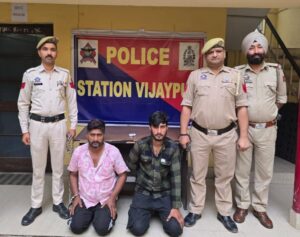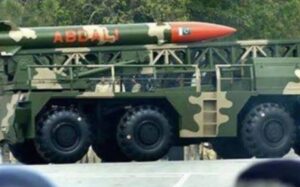Congress on the Backfoot: Charanjit Singh Channi’s Surgical Strike Remarks Spark Controversy

In a recent press conference following a Congress Working Committee (CWC) meeting in New Delhi on May 2, 2025, former Punjab Chief Minister and Congress MP Charanjit Singh Channi ignited a political firestorm by questioning the authenticity of India’s surgical strikes against Pakistan, particularly those conducted in 2016 and 2019 in response to the Uri and Pulwama terror attacks. His remarks, which appeared to demand proof of the military operations, have drawn sharp criticism from the Bharatiya Janata Party (BJP) and placed the Congress party in a defensive position, raising questions about the implications for national interest.
Channi’s Controversial Statement
Speaking at the press conference, Channi expressed skepticism about the surgical strikes, stating, “They say we carried out surgical strikes in Pakistan. Nothing happened, no one saw the surgical strikes. No one got to know.” He further remarked, “If a bomb is dropped in our country, would we not know? I have always demanded proof.” These comments were made in the context of the recent Pahalgam terror attack in Jammu and Kashmir, which claimed 26 lives, and Channi’s call for decisive action against Pakistan. He also dismissed measures like visa cancellations and the suspension of the Indus Waters Treaty as ineffective, urging the government to take stronger steps.
Channi’s remarks suggested a lack of visible evidence for the surgical strikes, which were hailed as significant military achievements by the Indian government and armed forces. The 2016 surgical strike targeted terror launchpads in Pakistan-occupied Kashmir (PoK) following the Uri attack, while the 2019 Balakot airstrike was a response to the Pulwama attack that killed 40 CRPF personnel. His statements appeared to question the credibility of these operations, drawing immediate backlash.
Congress on the Backfoot
The Congress party found itself on the defensive as Channi’s comments were perceived as undermining the morale of the Indian armed forces and contradicting the party’s official stance. The CWC meeting had passed a resolution expressing solidarity with the victims of the Pahalgam attack and urging the government to penalize Pakistan for its role in cross-border terrorism. Congress president Mallikarjun Kharge emphasized the party’s commitment to national unity and support for government action against terrorism. However, Channi’s remarks, made shortly after the CWC meeting, appeared to deviate from this unified stance, creating an impression of internal discord.
Facing mounting criticism, Channi backtracked on May 3, 2025, clarifying, “There is nothing about surgical strikes today. Its proof is not asked for, and I am not asking for it either. What I am saying is that don’t try to divert this.” He further stated that the Congress stood firmly with the government in combating terrorism and supporting any action against Pakistan. This U-turn came after the BJP launched a scathing attack, accusing the Congress of insulting the armed forces and aligning with anti-national narratives.
The Congress leadership reportedly directed its leaders to adhere to the official party line, especially on sensitive issues like national security, to avoid further embarrassment. Channi’s remarks were particularly damaging as they echoed a previous controversy in 2024, when he allegedly called a terror attack in Poonch “stuntbaazi” (a political stunt), further fueling perceptions of insensitivity toward the military.
BJP’s Counteroffensive
The BJP seized the opportunity to portray the Congress as unpatriotic and soft on terrorism. BJP national spokesperson Sambit Patra accused the Congress of orchestrating a “planned, strategic” move to question the surgical strikes, alleging that Channi’s press conference was deliberately timed to undermine national unity. Patra remarked, “Right after the CWC, a prominent Congress leader, the former Chief Minister of a bordering state, addresses a press conference to question the possibility of the surgical strike… that it did not happen.” He questioned why there was “chaos in Pakistan” if the strikes were ineffective, as Channi claimed.
Other BJP leaders echoed this sentiment. Tarun Chugh, BJP National General Secretary, called Channi’s remarks an “insult to the entire nation,” accusing the Congress of “pro-Pakistan thinking.” Delhi Minister Manjinder Singh Sirsa labeled the comments a reflection of the “dirty mentality of the Gandhi family,” while Shehzad Poonawalla dubbed the Congress a “Pakistan Parast Party” (Pakistan-friendly party). Ravinder Raina and CR Kesavan further condemned Channi, citing his past remarks as evidence of a pattern of disrespect toward the military.
The BJP’s aggressive response framed the Congress as a party that prioritizes vote-bank politics over national security, especially at a time when the nation is reeling from the Pahalgam attack and expecting a unified response to terrorism.
Is This in the National Interest?
Channi’s remarks and the subsequent political slugfest raise critical questions about their impact on national interest. At a time when India is grappling with heightened security concerns following the Pahalgam attack, public questioning of military operations like the surgical strikes risks undermining the armed forces’ morale and credibility. The strikes are widely regarded as a demonstration of India’s resolve to combat cross-border terrorism, and casting doubt on them could embolden adversarial narratives, particularly from Pakistan, which has often denied the occurrence of these operations.
Moreover, Channi’s comments have deepened the political divide, shifting focus from a unified response to terrorism to partisan bickering. National interest demands cohesion in the face of external threats, and the Congress’s failure to present a consistent stance has weakened its position as a responsible opposition. The party’s swift directive to its leaders to avoid deviating from the official line indicates an awareness of the damage caused, but the incident has nonetheless fueled perceptions of opportunism and insensitivity.
On the other hand, Channi’s initial demand for proof could be seen as an attempt to hold the government accountable, especially in the context of perceived inaction following the Pahalgam attack. However, the timing and framing of his remarks, coupled with their contradiction of the CWC’s resolution, made them appear ill-judged and politically motivated. National interest is best served when political discourse prioritizes unity and constructive criticism over sensationalism, particularly on matters of security.
Conclusion
Charanjit Singh Channi’s remarks on the surgical strikes have placed the Congress party in a precarious position, forcing it to backtrack and reaffirm its commitment to national unity. The BJP’s relentless criticism has capitalized on the controversy to paint the Congress as anti-national, amplifying the political fallout. While accountability and transparency are vital in a democracy, questioning the armed forces’ actions in a manner that appears to undermine their credibility can have far-reaching consequences for national morale and security. As India navigates a volatile security landscape, both the Congress and the BJP must prioritize responsible rhetoric that strengthens, rather than weakens, the national interest.





